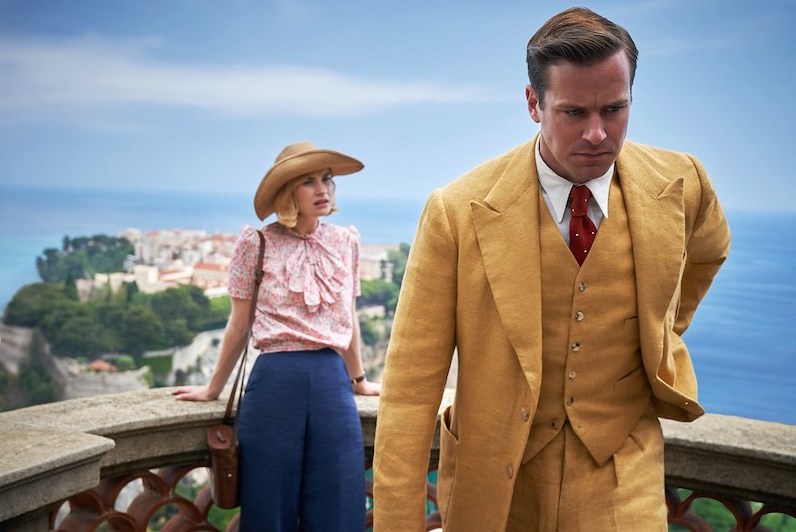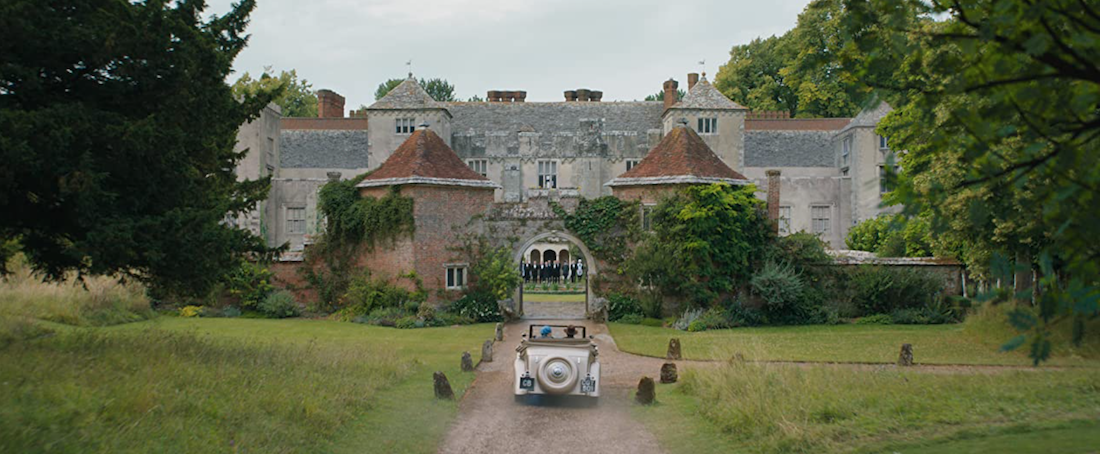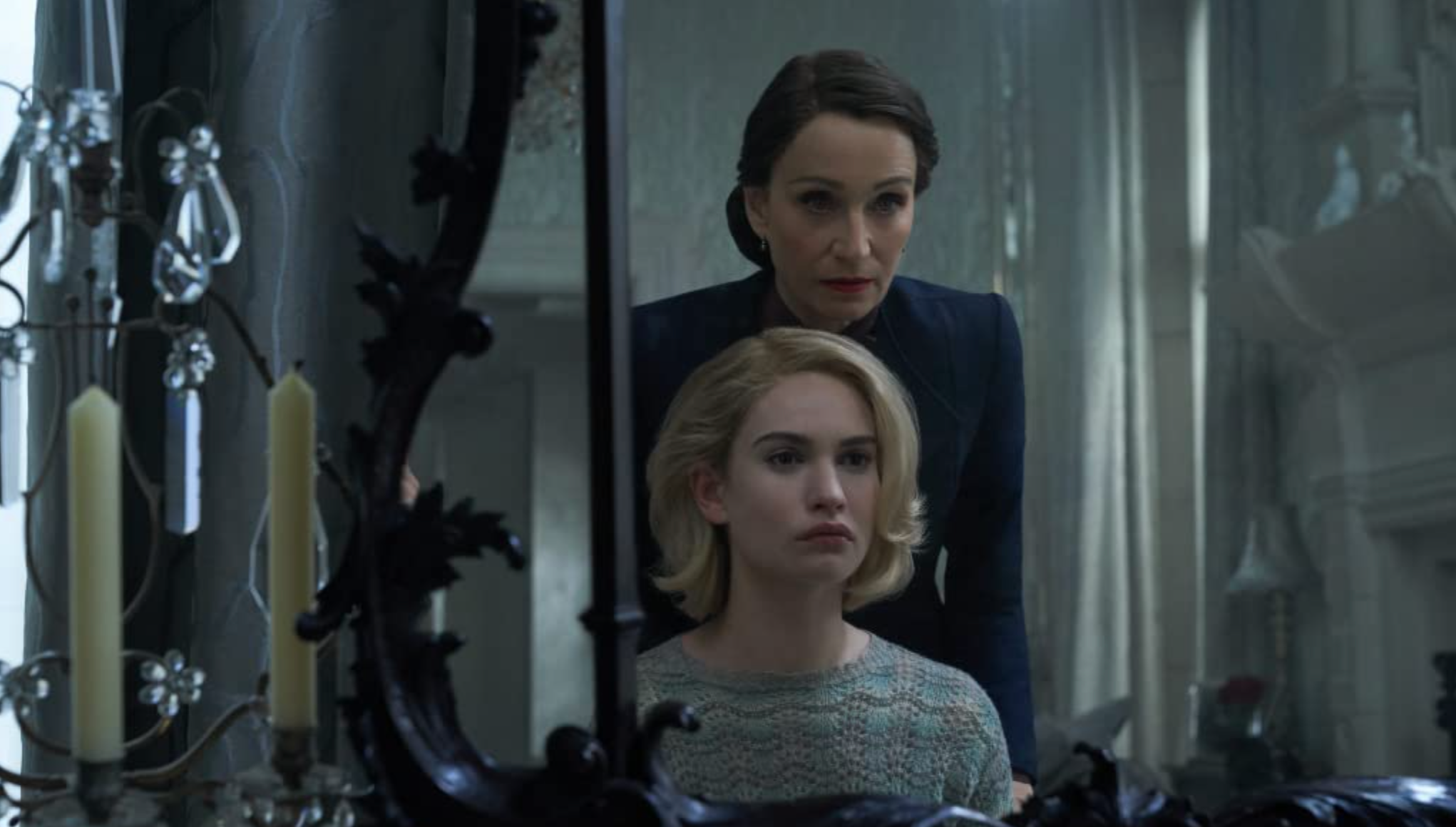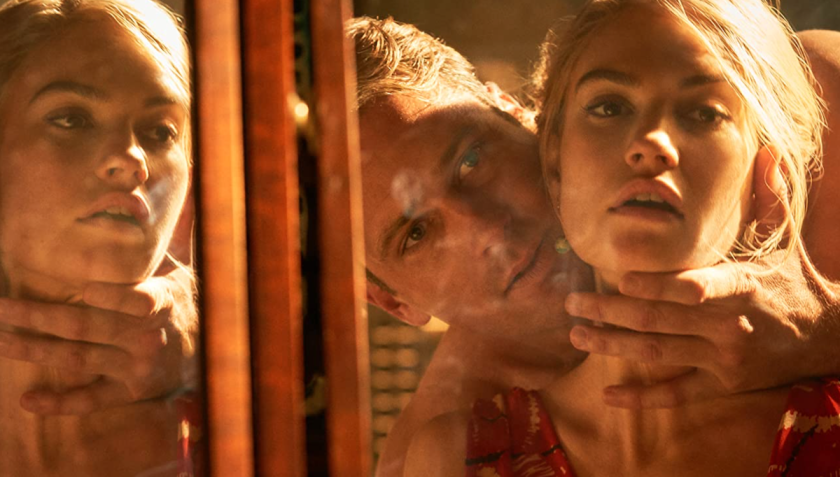When it was announced that Ben Wheatley would be directing a new version of Rebecca, his fans must have wondered what kind of exciting damage he would do to the neo-Gothic template of Daphne du Maurier’s 1938 novel – and how he might spin the material in a different way than did Alfred Hitchcock in his unimpeachable 1940 classic starring Laurence Olivier, Joan Fontaine and Judith Anderson.
Perhaps Wheatley would inject some social commentary or working-class bloody-mindedness into du Maurier’s haute bourgeois world, or dirty up Maxim de Winter’s pristine Cornwall pile Manderley with cobwebs, rats and dry rot. Maybe he would confirm our suspicions that Maxim is impotent, opening the door to the second Mrs de Winter being morbidly bi-curious about her dead predecessor, Rebecca. That would give the psychotic housekeeper Mrs Danvers – who worships the ground Rebecca used to walk upon – greater reason to torment her new mistress more than she already does.
None of this was to be because Wheatley’s Rebecca is not really a Wheatley film at all in the auteur sense. He and his co-writer and editor partner (and wife) Amy Jump didn’t write it, so it lacks the devilry and fun of, say, their Kill List (2011) and High Rise (2015), and the off-kilter beauty of that little masterpiece A Field in England (2013). Devoid of directorial personality, this Rebecca – written by Jane Goldman, Joe Shrapnel, and Anna Waterhouse – is a glossy, generic, and not markedly Gothic country house thriller. Bar its one thrilling performance, it’s as necessary as Gus Van Sant’s shot-for-shot 1998 remake of Hitchcock’s Psycho.
 The current go-to girl for period heroines who discover they’ve got more resourcefulness and pluck than they thought they had, Lily James was an obvious choice to play the second Mrs de Winter. After she’s told us in voiceover that “last night I dreamt I went to Manderley again", as of course she had to, she hurtles back in time to her summer idyll in Monte Carlo, where she meets Maxim (Armie Hammer) nursing his sorrows six months after his dazzling and apparently beloved wife Rebecca has apparently drowned in a boating accident. (Pictured above, Lily James and Armie Hammer)
The current go-to girl for period heroines who discover they’ve got more resourcefulness and pluck than they thought they had, Lily James was an obvious choice to play the second Mrs de Winter. After she’s told us in voiceover that “last night I dreamt I went to Manderley again", as of course she had to, she hurtles back in time to her summer idyll in Monte Carlo, where she meets Maxim (Armie Hammer) nursing his sorrows six months after his dazzling and apparently beloved wife Rebecca has apparently drowned in a boating accident. (Pictured above, Lily James and Armie Hammer)
Maxim blithely steals away the nameless girl from her demeaning duties as lady’s maid to the bullying old socialite Mrs Van Hopper (Ann Dowd, very funny as this Cinderella's anti-Fairy Godmother) and they gad about Monaco in his sports car and have a lot of sex, once on a beach, for sure, but also, she later fondly remembers, in “little hotels”! Mrs Van Hopper then gets her comeuppance – the lordly Maxim really is going to marry her strictly middle-class drudge – and it’s off to Manderley for the second Mrs de Winter’s own rude awakening. Here she sees birds swarming strangely in the sky, Wheatley's nod to Hitchcock's The Birds (1963), based on a du Maurier short story.
The stately mausoleum is ruled by Mrs Danvers – not with a rod of iron but with Kristin Scott Thomas’s soul-destroying disdain. It’s not so much that she crushes the second Mrs de Winter with withering glances (when, for example, she fails to match Rebecca’s genius for choosing the right sauce for the veal), it’s that she half-forms withering glances but can’t be bothered to direct them at the vapid interloper. Scott Thomas – whose softening as Mrs Danvers makes her fleetingly sympathetic – gives a very different performance than Anderson, but she’s equally brilliant and the main reason to see the movie. (Pictured below, the newlyweds arrive at Manderley) Rebecca may be dead but her ghost is very much alive. It could be argued that the decision to reveal that Maxim and the second Mrs de Winter got consumingly loved up in Monte Carlo not only gives the film an adult sensibility appropriate both to the mid-1930s and today, but also makes her suspicion that he’s still in erotic thrall to Rebecca all the more sickening. Wheatley’s Rebecca does succeed on a psychological level – as a nightmarish Oedipal drama – if one sees it as a female Hamlet in which Rebecca is King Hamlet and Gertrude combined.
Rebecca may be dead but her ghost is very much alive. It could be argued that the decision to reveal that Maxim and the second Mrs de Winter got consumingly loved up in Monte Carlo not only gives the film an adult sensibility appropriate both to the mid-1930s and today, but also makes her suspicion that he’s still in erotic thrall to Rebecca all the more sickening. Wheatley’s Rebecca does succeed on a psychological level – as a nightmarish Oedipal drama – if one sees it as a female Hamlet in which Rebecca is King Hamlet and Gertrude combined.
In 1940, Hitchcock wasn’t allowed to suggest that Maxim and his future second wife were intimate before they were married, but he was cunning enough not to have suggested it anyway. Our not knowing what happens between them in the bedroom ratchets up the tension exponentially as their relationship turns frosty at Manderley.
If Maxim is withholding, what’s the second Mrs de Winter to think in Hitchcock's Rebecca when the mad Mrs Danvers politely gives her a tour of Rebecca’s untouched bedroom to humiliate her sexually by fetishistically fingering the dead woman’s lingerie, feigning mild surprise when she pushes her hand into a sheer black negligee and sees it there beneath the filmy fabric? The bride’s brow creases, tears well up, she begins to crack. And she still has to confront the possibility that Maxim murdered Rebecca in a jealous rage. The scene was re-created almost identically by Wheatley. It leads to the self-consciously modish moment when Mrs Danvers – who seemingly took sadomasochistic voyeuristic delight in Rebecca's promiscuity – rails against Maxim for slut-shaming her. (Pictured below, Kristin Scott Thomas and Lily James)
 The copying of the negligee scene indicates this production was predicated as a remake as much as a closer adaptation of the novel than Hitchcock's film, though it is that. However, unlike the 2013 version of The Lady Vanishes, which was more faithful than Hitchcock's 1938 version to Ethel Lina White’s novel The Wheel Spins, Rebecca doesn’t alter perceptions of du Maurier's protagonist beyond making her less neurotic.
The copying of the negligee scene indicates this production was predicated as a remake as much as a closer adaptation of the novel than Hitchcock's film, though it is that. However, unlike the 2013 version of The Lady Vanishes, which was more faithful than Hitchcock's 1938 version to Ethel Lina White’s novel The Wheel Spins, Rebecca doesn’t alter perceptions of du Maurier's protagonist beyond making her less neurotic.
James is typically appealing, but more glamorous and less harrowed in the role than was Fontaine. Whereas Hitchcock’s second Mrs de Winter really has to muster her will to assert herself, self-assertion feels pre-programmed in Wheatley’s second Mrs de Winter – a peril of the story's familiarity, and also a sign of the times. When are we going to see the politically incorrect Rebecca in which Mrs Danvers’ campaign to drive Maxim's bride insane has the desired effect and she either burns down Manderley herself or ends up a madwoman in the attic?
In his second outing with Wheatley following Free Fire (2016), Hammer is convincingly English as Maxim and you can see how he’ll succumb to the stuffiness that has already overtaken Olivier’s incarnation. As Rebecca’s sleazy cousin and lover Jack Favell, Sam Riley has to wade through some horrible double entendres when he and the second Mrs de Winter go riding on the same horse. Keeley Hawes plays Maxim’s sister Beatrice, whose brisk charm encourages her new sister-in-law and temporarily leavens Manderley’s suffocating melancholy. But it's Scott Thomas's film.















Add comment